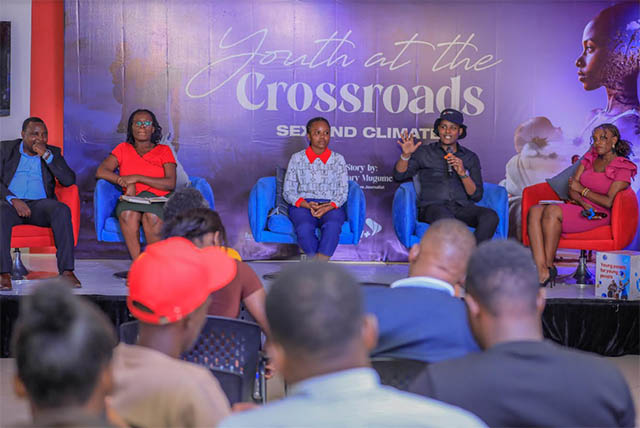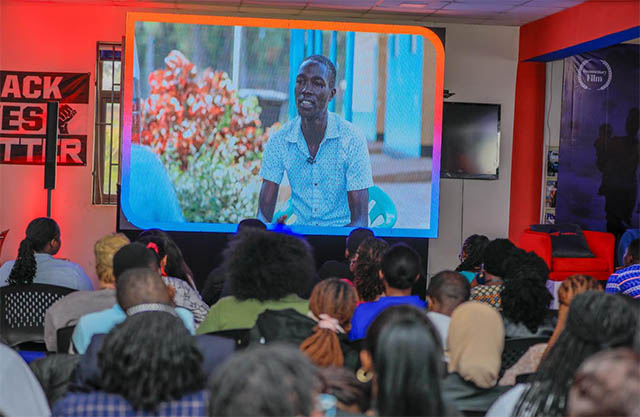
Reach A Hand Uganda Calls for Integration of SRHR into National Climate Change Policies.
Kampala, Uganda | THE INDEPENDENT | While premiering a documentary titled “Youth at the Crossroads: Sex and Climate” at the American Centre in Kampala this week, Reach A Hand Uganda (RAHU) called on the Government and other stakeholders to incorporate sexual and reproductive health rights (SRHR) into national climate change policies and plans to reduce the risks of sexual violence against girls and women in rural communities.
The documentary – which was produced by Sauti Plus Media Hub with support from the Hewlett Foundation – highlights the status quo of sexual reproductive health in the Apodorwa and Nyamahasa villages of Kiryandongo district.
It highlights how climate-related disruptions like drought have contributed to high school dropout rates among girls and exposed them to greater risks of sexual violence since girls and women bear the responsibility of securing natural resources for household domestic use.
Reach A Hand Uganda’s Country Director, James Tumusiime, said, “This documentary resulted from community stakeholder engagements we are holding in the districts of Kiryandongo, Yumbe, and Kasese, during which we encountered sociocultural norms and narratives that heavily contribute to the barriers against the achievement of reproductive health rights – especially for girls and young women.”
He added that through the documentary, the organisation is seeking to highlight the impact of the lack of legislation and inadequate access to SRHR services and information while encouraging key stakeholders to proactively advocate for progressive policies and strategies around issues like sexual violence, teenage and unplanned pregnancies, and more.

In a panel discussion, Agnes Ssebowa from the Ministry of Health’s Adolescent Health Department remarked that while teenage pregnancies are prevalent, there has also been a surge in urogenital infections driven by poor menstrual hygiene due to the limited access to clean water in rural communities.
The panel also had Raymond Ruyoka from Youth Advocacy and Development Network Uganda (YADNET), Muyama Shaima Kemigisha – a youth advocate, and Canary Mugume – a journalist.
YADNET’s Ruyoka encouraged the generation of adequate data about climate change that is locally generated for dissemination to young people in rural communities through mass media platforms like radio towards influencing policies.
The event culminated in the presentation of a paper highlighting the need for specific actions from the Government and relevant stakeholders including; adopting a multisectoral approach to addressing climate change and SRHR; incorporating climate justice and SRHR into school curricula; improving data collection on climate change and its impact on youth; strengthening community resilience and support systems; investing in youth-led climate justice initiatives and; global and local partnerships for contextual climate solutions.
 The Independent Uganda: You get the Truth we Pay the Price
The Independent Uganda: You get the Truth we Pay the Price



